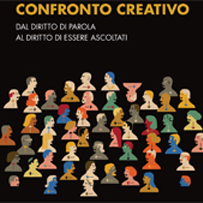Consensus Building: the Democracy which Works Properly in Complex Society
Abstract
“Quality of life and governance are more and more related. The Consensus Building method is the “other” democracy, the one which works in complex societies. This approach has old roots, but its current success born in the last years due to two phenomenon’s; the great crisis in traditional governance in particular in western societies from 70’s until nowadays, and the inadequate local answers to this problems. On one hand some governments try to solve it with more restrict places of power, that take decisions on their own, on the other hand or they try to solve it with naïve participation, open new moments of decision without specific methods, thinking that differences could be solve with “good will” and voting. (From the introduction“Confronto Creativo; dal diritto alla parola al diritto di essere ascoltati” Lawrence Susskind- Marianella Sclavi 2011)
On September 2011 Lawrence Susskind came to Italy in order to presents his book “Confronto Creativo, dal diritto di parola al diritto di essere ascoltati”, wrote with Marianella Sclavi. This book has been published in more than 20 countries, from China, to Japan. The authors underline the idea that globalization is, in certain way, helping the born of a different governance, which makes democracy and new ways of participation been closer than in the past. This interview tries to answer some questions of participatory urban planning in Italy nowadays. As for example; can consensus building help to deal with complex cities nowadays? Who should promote consensus building approach: governments, citizens, private entrepreneurships? Which are the obstacles, and the methodologies to solve them? Once urban planners finish their work, who implement the projects? What are the new languages that urban planning should find in order to create local processes?
Downloads
References
M Sclavi: “Il Metodo del Confronto Creativo: un upgrading della democrazia” in Riflessioni Sistemiche, semestrale on line dell'AIEMS (Associazione Italiana di Epistemologia e Metodologia Sistemiche), N. 2 , 2010

Copyright (c) 2014 Tema. Journal of Land Use, Mobility and Environment

This work is licensed under a Creative Commons Attribution 4.0 International License.
Authors who publish in this journal agree to the following:
1. Authors retain the rights to their work and give in to the journal the right of first publication of the work simultaneously licensed under a Creative Commons License - Attribution that allows others to share the work indicating the authorship and the initial publication in this journal.
2. Authors can adhere to other agreements of non-exclusive license for the distribution of the published version of the work (ex. To deposit it in an institutional repository or to publish it in a monography), provided to indicate that the document was first published in this journal.
3. Authors can distribute their work online (ex. In institutional repositories or in their website) prior to and during the submission process, as it can lead to productive exchanges and it can increase the quotations of the published work (See The Effect of Open Access)
